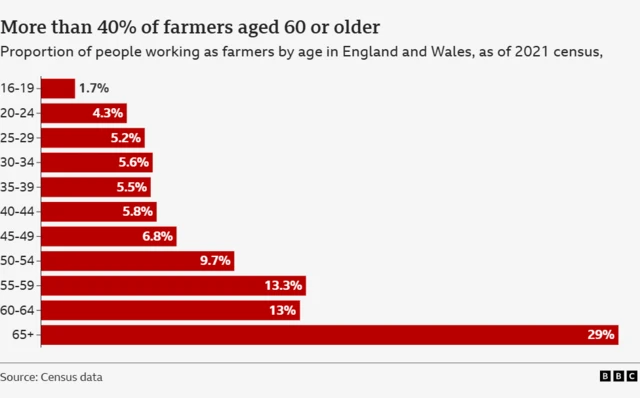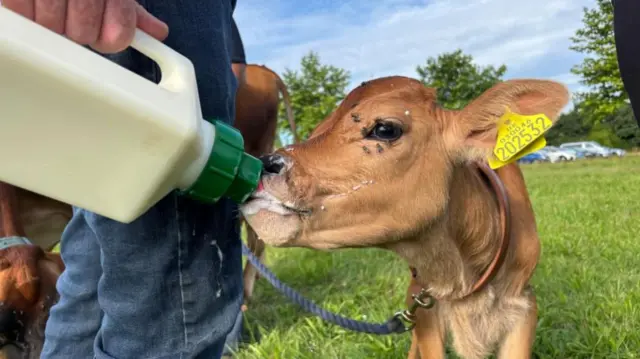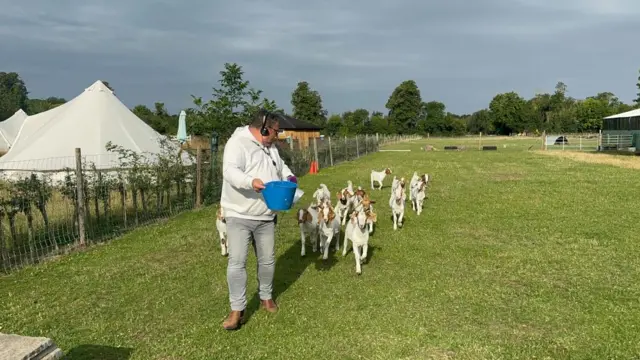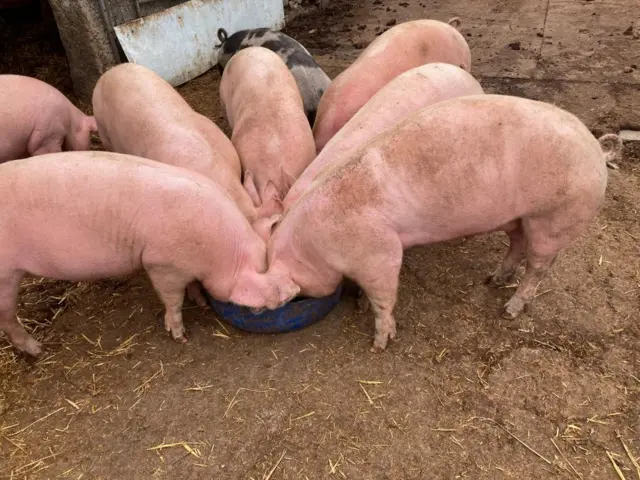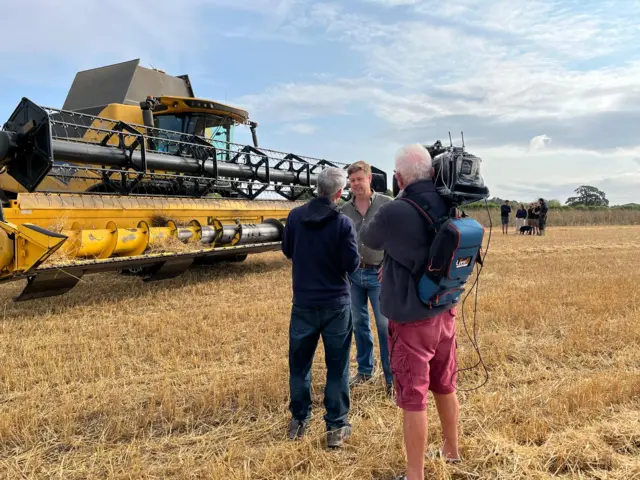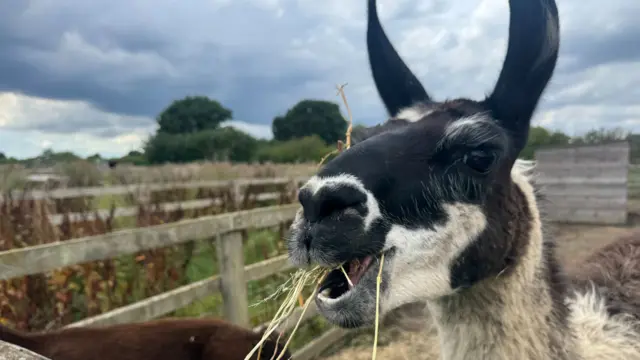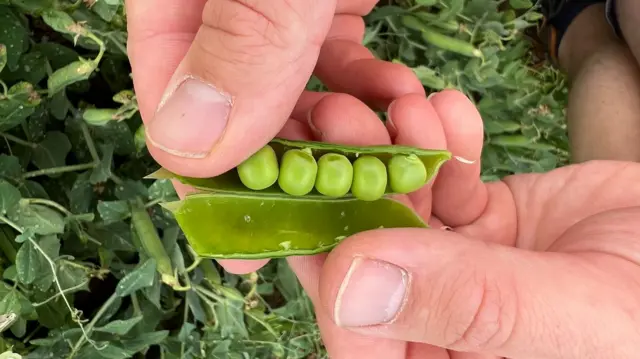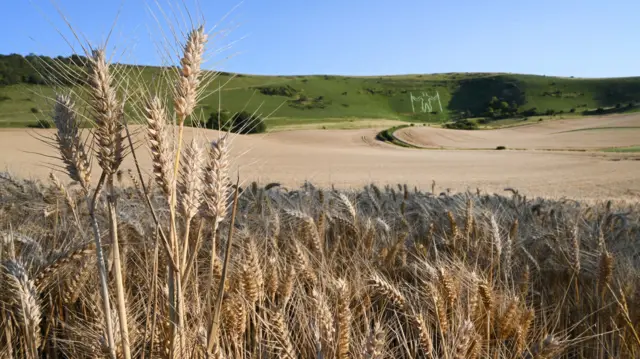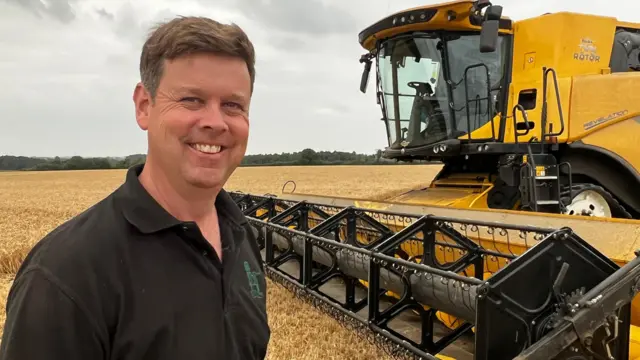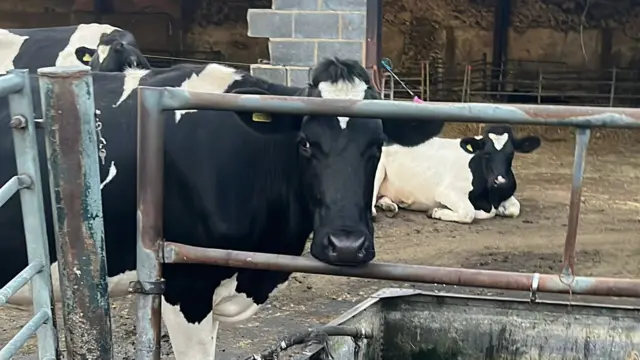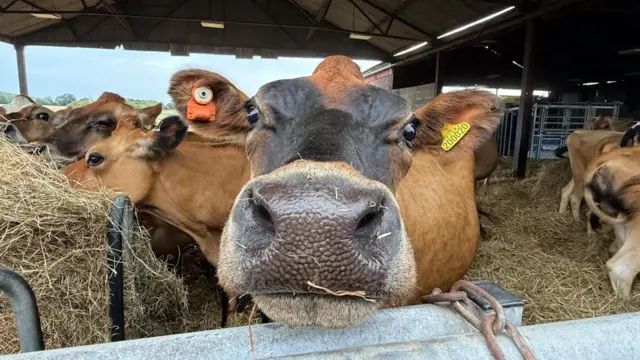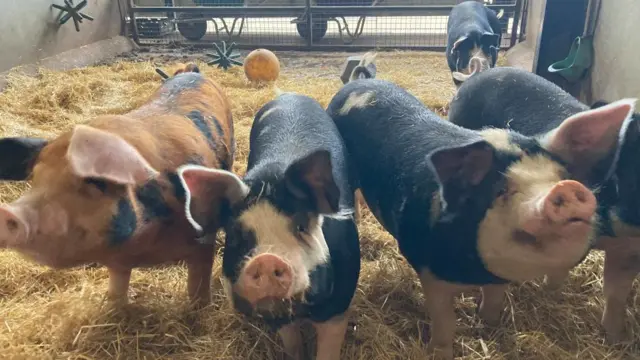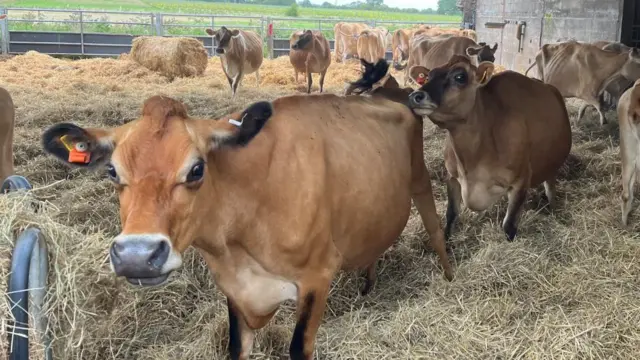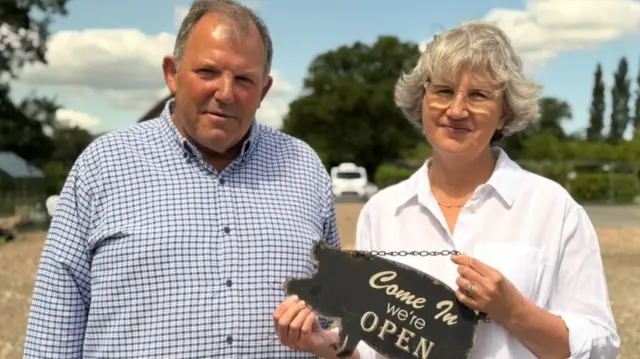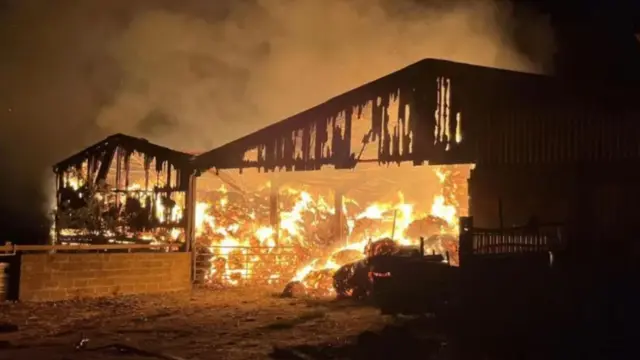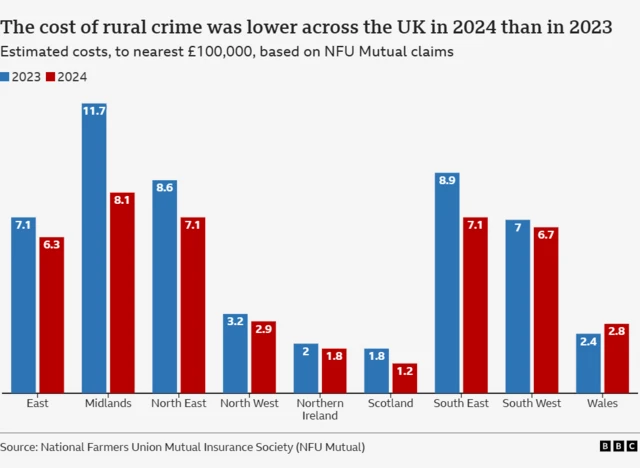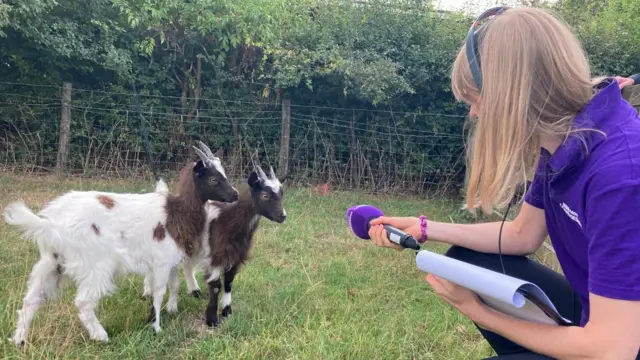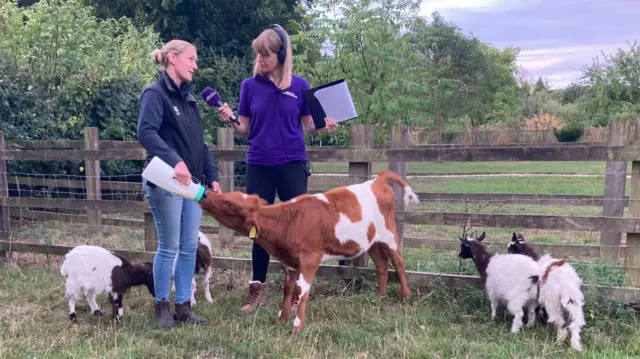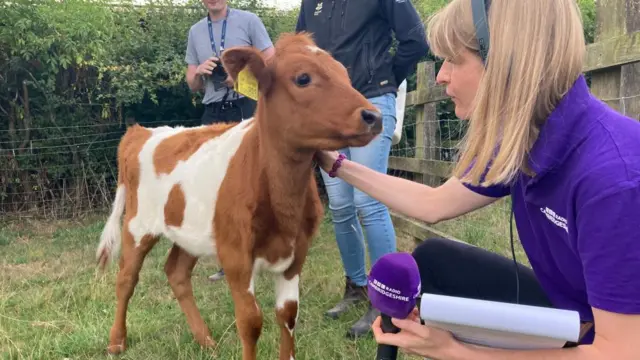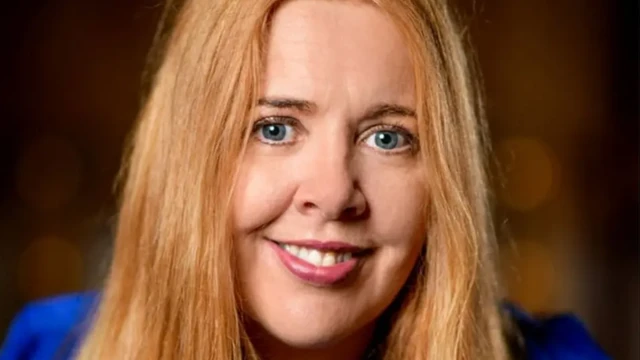'Dad set me rolling when he knew I could drive a tractor'published at 10:44 BST 7 August
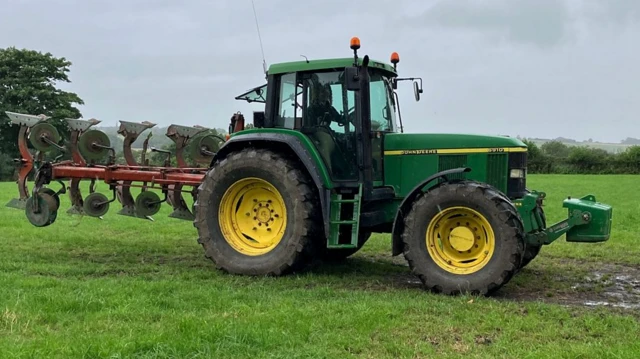
Lancashire farmer Amy Shaw was asked to rake a field for the first time last year
While the average farmer might be male, there's plenty of women like third generation farmer Amy Shaw who play a very active role.
She's been helping out on the family's dairy farm in Blackburn since she was a child.
"I use to bottle milk and doorstep deliveries because it's in your blood, it's what you do," she says.
She loves tractors and has learned to drive them by watching her dad on the job.
"The moment Dad realised I could drive one he set me rolling and last year I managed to rake a whole field before he'd even finished explaining what I had to do."
On whether she has been embraced as a woman farmer, Amy says: "Some people are set in their ways, but others love the fact I do it."
